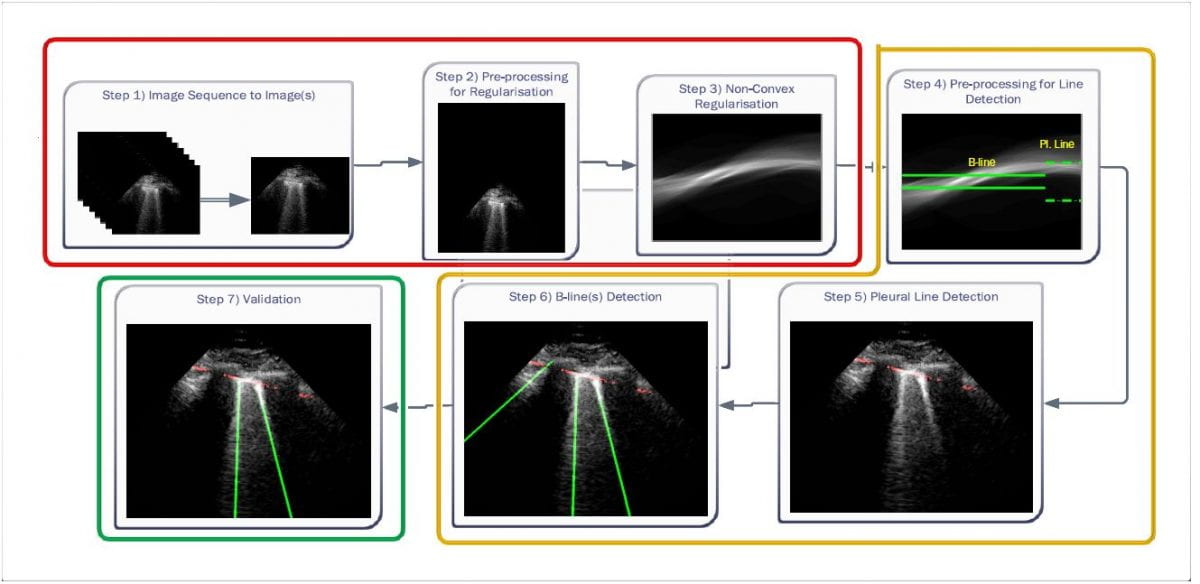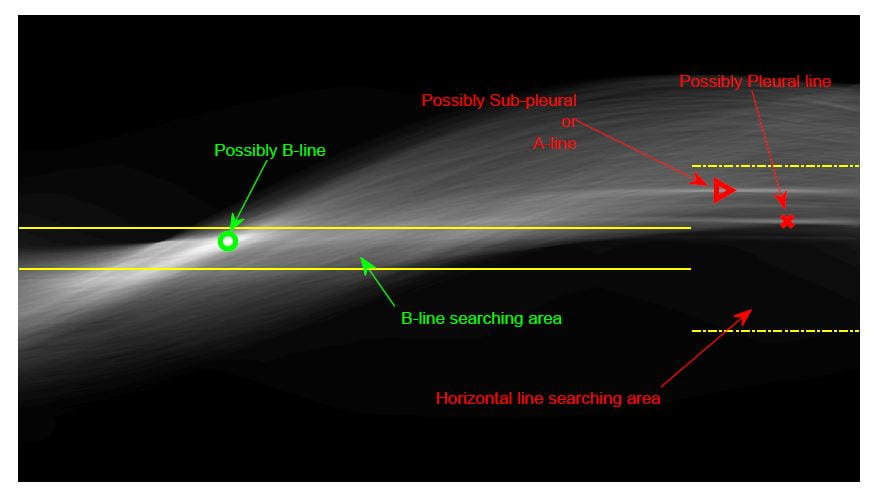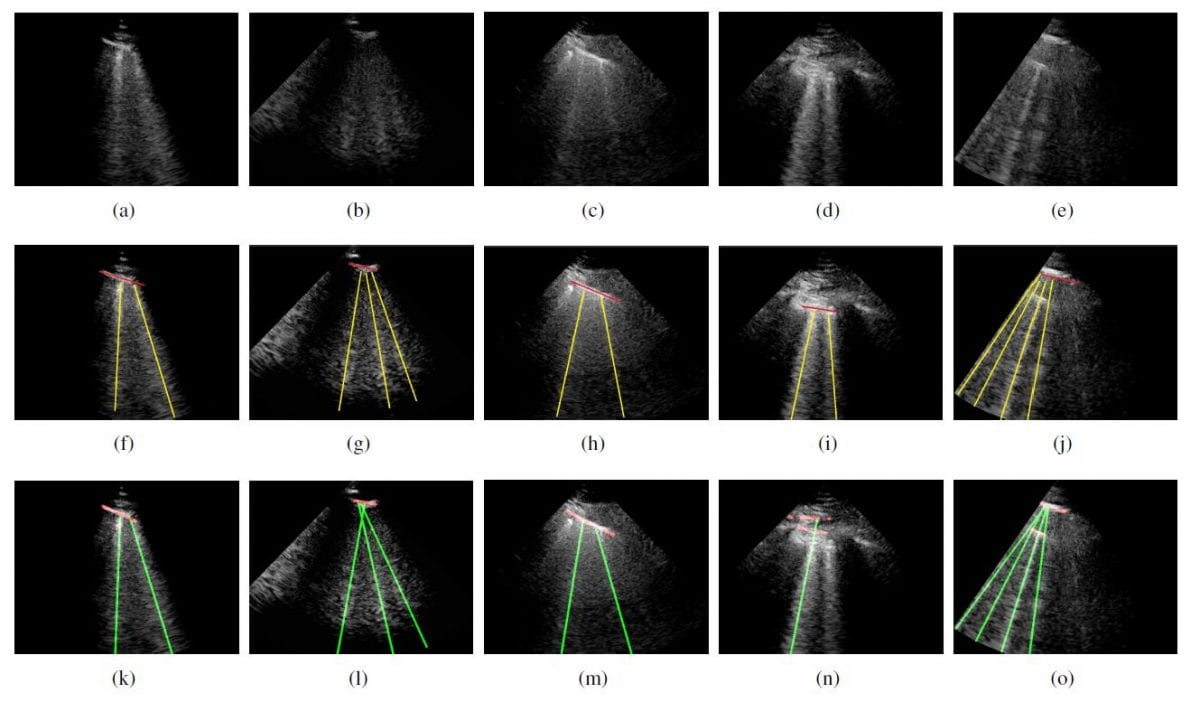
In this project, we present a novel method for line artefacts quantification in lung ultrasound (LUS) images of COVID-19 patients. We formulate this as a non-convex regularisation problem involving the heavy-tailed Cauchy-based penalty function, and the inverse Radon transform.
We employ a simple local maxima detection technique in the Radon transform domain, associated with known clinical definitions of line artefacts.


Despite being non-convex, the proposed technique is guaranteed to convergence through our proposed Cauchy proximal splitting (CPS) method, and accurately identifies both horizontal and vertical line artefacts in LUS images. In order to reduce the number of false and missed detection, our method includes a two-stage validation mechanism, which is performed in both Radon and image domains.
We evaluate the performance of the proposed method in comparison to the current state-of-the-art B-line identification method and show a considerable performance gain with 87% correctly detected B-lines in LUS images of nine COVID-19 patients.

Further information
[1] Karakuş, O., Anantrasirichai, N., Aguersif, A., Silva, S., Basarab, A., & Achim, A. (2020). Detection of Line Artifacts in Lung Ultrasound Images of COVID-19 Patients Via Nonconvex Regularization. IEEE Transactions on Ultrasonics, Ferroelectrics, and Frequency Control, 67(11), 2218-2229.
Talk
Talk by Dr Oktay Karakus in Acoustics Virtually Everywhere The 179th Meeting of the Acoustical Society of America 7-11 December 2020
Contact
Oktay Karakuş, Pui Anantrasirichai, Alin Achim
Code
O Karakus, A Achim. (2020): QuantLUS – CPS v1.0 https://doi.org/10.5523/bris.z47pfkwqivfj2d0qhyq7v3u1i
Funding
This work was supported in part by
** the UK Engineering and Physical Sciences Research Council (EPSRC) under grant EP/R009260/1,
** an EPSRC Impact Acceleration Award (IAA) from the University of Bristol, ** a Leverhulme Trust Research Fellowship to Achim (INFHER).
